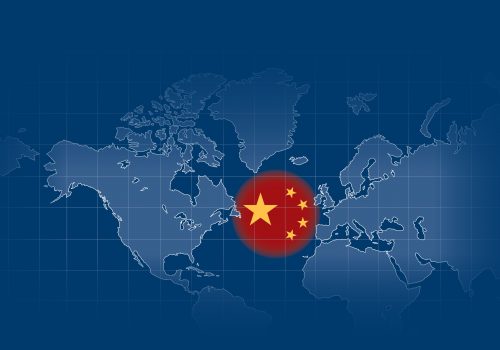
-
Published: 22 February 2023

The Global Security Initiative Concept Paper issued by China has shown the country's sense of responsibility for safeguarding world peace and firm resolve to defend global security, according to officials and experts.
Edited by|Hugh Gey
China section - CJ journalist
22 Feb.-2023 - Xinhua
The concept paper was released during the Lanting Forum on the Global Security Initiative: China's Proposal for Solving Security Challenges, which was held by the Chinese Foreign Ministry on Tuesday.
The concept paper expounds the core ideas and principles of the Global Security Initiative (GSI), and identifies the priorities, platforms, and mechanisms of cooperation, Foreign Minister Qin Gang said when delivering a keynote speech at the opening ceremony of the forum.
The China-proposed GSI aims to create a new path to security that features dialogue over confrontation, partnership over alliance, and win-win over zero-sum. It provides a new course and approach to addressing the root causes of international conflicts and solving security challenges facing humanity.
The GSI embodies the core tenets in the vision of a community with a shared future for humanity and has been warmly received by the international community upon its introduction. Over 80 countries and regional organizations have expressed their appreciation and support, Qin said.
"This is a time of serious security problems and, yes, the time of rising tensions directly affecting global peace and security," former Slovenian President Danilo Turk said in a video address at the opening ceremony of the forum, adding the Cold War mentality has affected global security and made international communication difficult.
"The Global Security Initiative offers a strong conceptual framework for global security dialogue and cooperation," Turk said, adding that it rightly emphasizes the centrality of respect for sovereignty, integrity, and dignity of all states and non-use of force and non-interference in internal affairs of states. These are the essential values of global importance enshrined in the purposes and principles of the UN Charter, he said.
The concept paper summarizes the core concepts and principles of the GSI into six commitments, which are: stay committed to the vision of common, comprehensive, cooperative, and sustainable security; stay committed to respecting the sovereignty and territorial integrity of all countries; stay committed to abiding by the purposes and principles of the UN Charter; stay committed to taking the legitimate security concerns of all countries seriously; stay committed to peacefully resolving differences and disputes between countries through dialogue and consultation; stay committed to maintaining security in both traditional and non-traditional domains.
"These six commitments provide us with fundamental guidance to safeguard world peace and tranquility in the face of unprecedented security dilemmas," said Zhu Zhongbo, director and associate research fellow at the Department for International and Strategy Studies of China Institute of International Studies.
"Only effective multilateralism rooted in cooperation and urgency can steer the United Nations to better respond to today's multiplying global challenges and safeguard global security, including emerging non-traditional threats," former UN Secretary-General Ban Ki-moon said in his video address at the opening ceremony of the forum.
According to experts, the formulation and release of the concept paper is an important step China has taken in following through on the GSI. It lays out 20 priorities of cooperation in response to the most significant and pressing international security concerns at present, including upholding the UN's central role, facilitating political settlement of hotspot issues, tackling traditional and non-traditional security challenges, and strengthening the system and capacity for global security governance.
On the full escalation of the Ukraine crisis, Qin said China would continue to promote peace talks and contribute its ideas for a political settlement. China would join the international community to promote dialogue and consultation, address the concerns of all parties, and seek common security.
"This is what and how we should do," said Professor Jeffrey Sachs of Columbia University. He added that countries should uphold the purposes and principles of the UN Charter and promote consultation and dialogue to address international hotspot issues.
